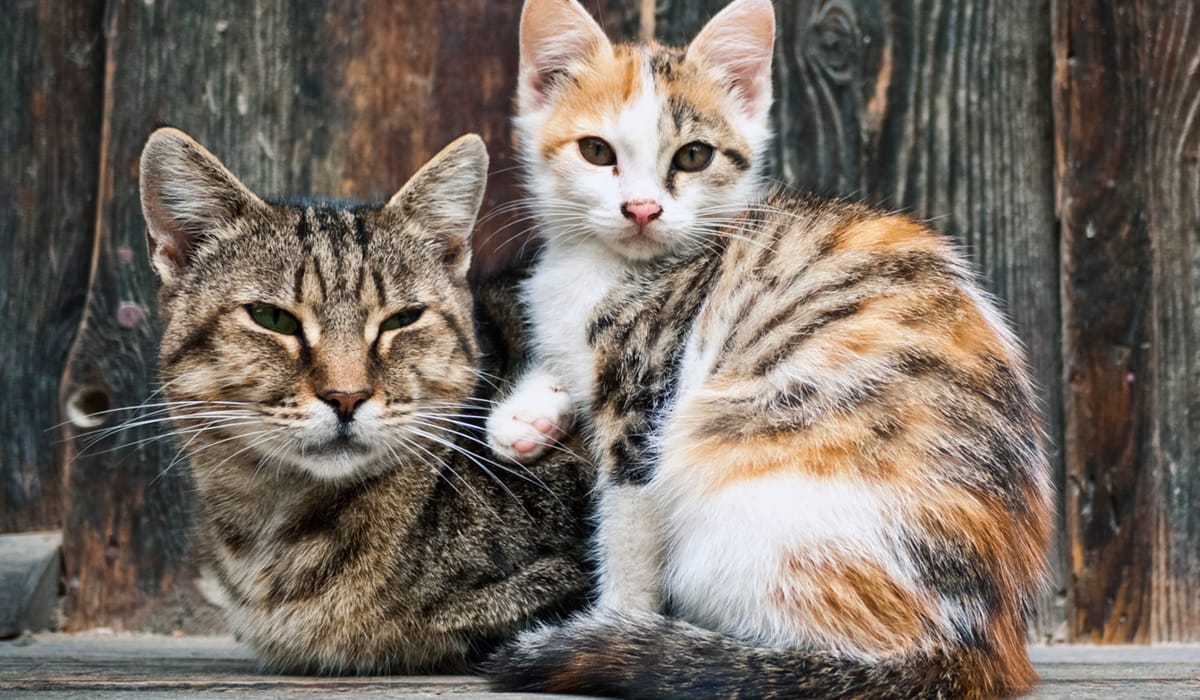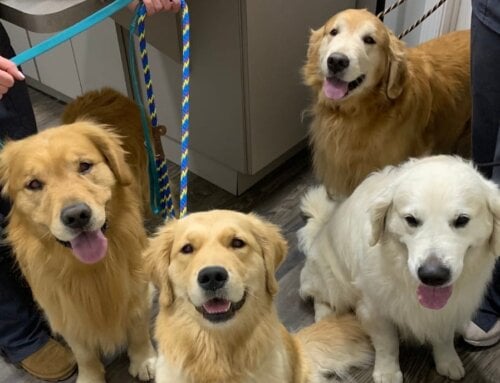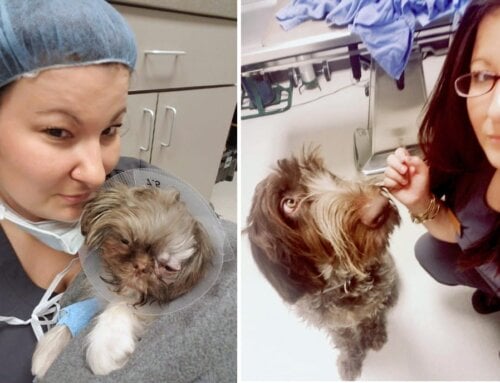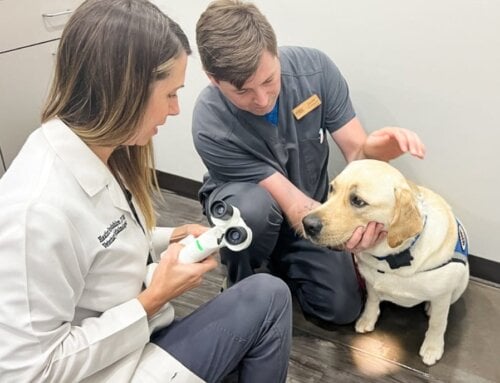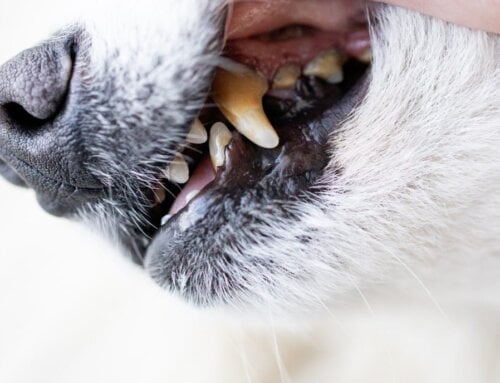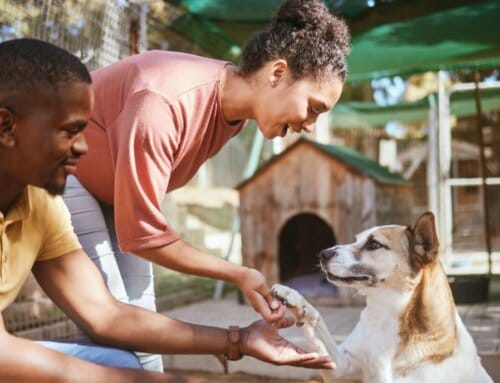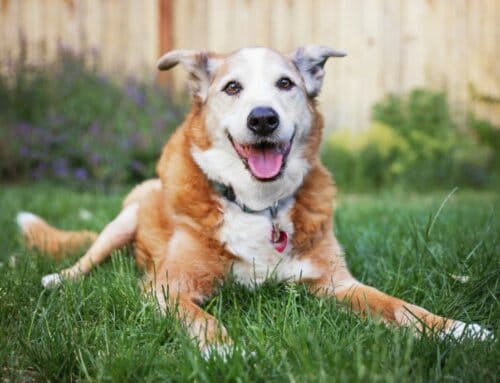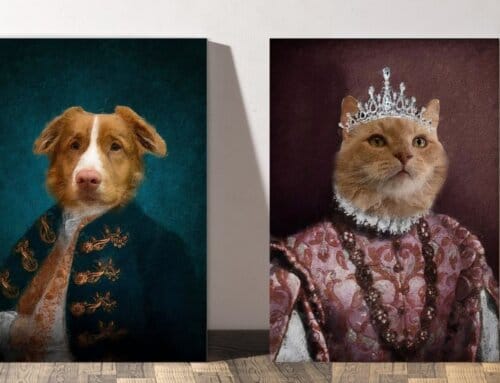Vaida Moore founded the Feral Affairs Network (FAN) in 2016 to help address the problem of overpopulation of community cats in Hampton Roads. The nonprofit organization’s primary goal is to trap-neuter-return (TNR) feral or community cats to their environment, while providing support to their caretakers in need. Ultimately, this results in a happy, healthy and safe community for cats throughout the region. An analyst by day, and a TNR activist by night, Vaida holds a Master’s degree in Public Administration from Old Dominion University. We caught up with her recently and posed a few questions about FAN.
What is your background and why did you decide to launch FAN?
Cats have captured my heart since I was a little girl. I started volunteering at the Norfolk Animal Care and Adoption Center in 2009 and soon became very involved in all aspects of animal care, from fostering to adoption and beyond. At the same time, I became more aware of the problem of animal overpopulation, especially when it comes to cats. One particular group of feral or community cats caught my attention, and I started researching possible solutions.
That is when I learned about trap-neuter-return (TNR). I bought a couple of traps and started my own operation as a one-woman team. I was amazed to find a big community of feral cat advocates here locally, working to reduce their overpopulation and suffering, at the same time providing much needed relief to the overcrowded municipal animal shelters.
With some experience and valuable connections under my belt, I decided that it was prudent to form a professional team and pool our resources to better serve the community. Guided by the idea of connecting compassionate hearts to save community cats, Feral Affairs Network (FAN) was born in 2016. We now have a solid team of close to 20 volunteers serving in varying capacities and making our continued operation possible.
Today FAN is a nonprofit 501(c)(3) organization whose primary goal is to trap-neuter-return (TNR) feral or community cats and also provide support to their caretakers in need. Our ultimate goal is happy, healthy and safe community cats throughout Hampton Roads and a strong caretaker network working together to support and care for community cats in every way possible.
How does TNR work?
TNR is a method for humanely and effectively managing community (also known as feral) cats. It is understood that such cats are technically domestic but, due to some reason (abandoned, born outside, etc.), are not socialized and thus unadoptable. The process involves trapping cats (there are different types of traps available), spaying/neutering them typically at a low-cost high-volume veterinary clinic (rabies vaccine and the left ear tip removal are included), holding them in recovery as needed (male cats need much less recovery time as opposed to female cats) and returning them to their original location.
In cases where such locations are dangerous for cats to return to, it is recommended that they be relocated to barns and farms with committed caretakers. Once they are spayed/neutered and returned, cats become healthier, calmer and, overall, happier. They continue to thrive in their managed colonies no longer producing offspring which is often doomed to suffer and die.
If an individual is aware of a feral cat/colony in their neighborhood, what is the first step they should take; then what happens next?
The first thing to understand about community cats is that they are our community’s responsibility. Humans domesticated cats thousands of years ago and, by definition, became responsible for their wellbeing. It helps to think from that perspective when considering what action to take. Community cats are living outdoors because they might have been abandoned at some point and have continued to reproduce, creating a colony of unsocialized cats. Such cats can live happy and healthy lives outdoors if spayed/neutered and provided food and shelter.
Alley Cat Allies is a great resource about TNR in general. Their website also provides information about local groups in different areas available to help. We recommend that people reach out to TNR-oriented groups, like FAN, that can explain the process and provide resources, such as traps, holding space and help with spay/neuter surgeries. It is important to consider what all the steps are. Make a plan first and only then you can trap. The plan involves having holding/recovery crates set up, scheduling appointments at low-cost clinics and making sure transportation is arranged. Taking initiative and getting familiar with TNR is a worthwhile and life-saving undertaking. We are always available and can show people how to get started.
Spaying/neutering community cats is the best thing you can do for them, even if you can’t always provide food or shelter. Stopping the cycle of constant reproduction and suffering can make a huge difference and significantly improve their lives as well as create a healthier community in general.
FAN also offers adoption options. How do you socialize the cats before they go to a forever home?
While our main operation is TNR, we often come across young kittens or somewhat socialized cats. We place them into our foster homes, whenever possible, and work on fully socializing them. This, in combination with TNR, further reduces the numbers of community cats on the streets as well as stray kittens and cats entering municipal shelter. It gives some of them a chance to live their lives safely indoors.
Our fosters have varying degrees of experience that ranges from bottle-feeding neonatal kittens, to caring for geriatric cats and all ages in between. Some kittens are easier to socialize than others. It can take days, weeks and even months. Patience, feeding, playtime routines and other training and socializations elements can potentially turn even the most feral kittens around. All of our cats and kittens are spayed/neutered, fully vaccinated (rabies, distemper) and tested for Feline Immunodeficiency Virus (FIV) and Feline Leukemia (FeLV) prior to becoming available for adoption. We advertise our adoptable cats and kittens on Petfinder, Craigslist and also hold adoption events at the Greenbrier PetSmart in Chesapeake. Adoption Questionnaire and Adoption Contract apply.
We also understand that, in some cases, socialization is not an option. Some cats are simply more comfortable keeping their distance from humans while still being dependent on us for food and shelter. We respect that and have developed a relocation program called “Career Cats.” It places community cats in barns and creates a mutually beneficial “working” relationship between the cats and their new caretaker. Many of such adopters are happy with great rodent control and content felines roaming around.
What needs do you have as an organization?
Helping community cats takes a lot of time and effort. While it is truly rewarding, it can be costly. Monetary donations are among the most valuable as it costs $45-$50 to spay/neuter one community cat. Donations can be made through our website at www.feralaffairs.org or via PayPal: https://www.paypal.me/feralaffairs.
In addition, we always welcome donations of the following:
- Canned cat and kitten food, canned sardines, mackerel or tuna
- Dry cat and kitten food
- Dog houses or igloos
- Large gently used or new towels
- Sheets, to cover the traps and reduce stress
Shelter Building Supplies:
- X-large Styrofoam cooler boxes; preferred is 18” high x 20-22” wide
- Heavy-duty plastic storage tubs; preferred Rubbermaid
- Straw (NOT hay)
- Reflectix mylar insulation; found at Lowe’s in the insulation department
We also need help in the following areas:
- Trapping
- Transportation
- Recovery – keeping the cats in extra-large crates for a few days while they recover
- Building outdoor shelters
- Mentoring others
- Rotating days with a caretaker to feed a colony
You can view FAN’s Amazon Wish List here.
What is one important thing you’d like the public to know about your organization?
Integrity of thought and action is a very important guiding principal in FAN’s mission. I have been vegan for almost 10 years now and believe that animals are not here to be used as a resource for our needs. I believe that it is wrong to inflict unnecessary suffering on animals. In compassionate allegiance with all animals, and with our many friends in animal rescue, FAN supports Food For Thought campaign and serves no animal-derived products at our functions or events. This principle also extends to our fundraising efforts. Simply put: We don’t hurt animals to help animals. Though our focus is on helping community cats, compassion for all animals guides our policies and practices. Making the easy choice to serve only vegan food simply serves to extend our impact.
